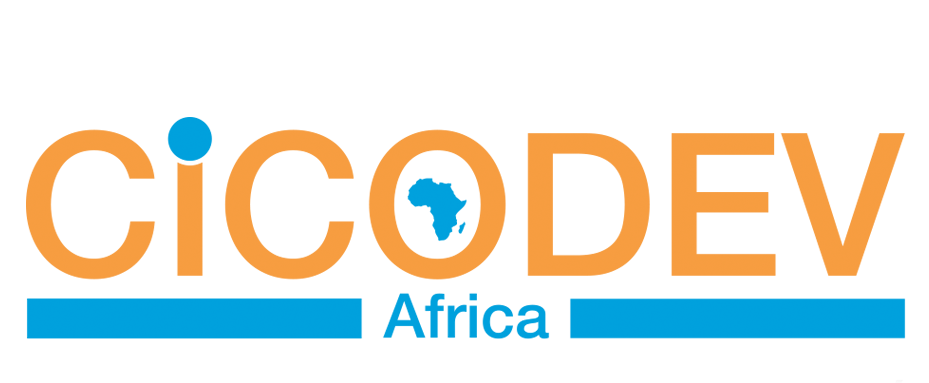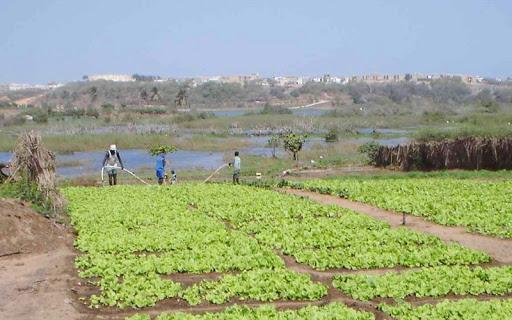Yesterday, the Pan-African Institute for Citizenship, Consumers and Development (CICODEV Africa) presented the results of a study on the identification of constraints related to access to productive water on family farms in the department of Rufisque. The survey revealed that 90% of respondents are not satisfied with their level of access to water.
CICODEV Africa has studied the issue of access to water in the department of Rufisque in depth. In its survey made public yesterday, the Pan-African Institute for Citizenship, Consumers and Development shared the results of its research, which focused on the causes of the lack of water and the drying up of the water supply in the department of Rufisque. The report reveals that Dakar has no more space. This explains the rush to Rufisque, which still has housing developments.
According to the CICODEV study, this has led to an increase in the population in the area and, naturally, in water consumption in the department. “In the Dakar agglomeration, the level of water consumption in Rufisque has increased by 17%, from 12,688,861 m3 to 14,865,662 m3. At the same time, Guédiawaye, Pikine and Dakar recorded, respectively, a consumption of 5.071% and 4.45% of their consumption levels,” noted in the document received by “L’AS”.
This situation strongly affects market gardeners, most of whom are not connected to boreholes. In addition, many boreholes are not functional. Thus, it is noted that 90% of the people interviewed (out of a sample of 100 people) are not satisfied with their access to water, deploring a progressive decline in the water table, a low financial capacity to acquire a mini-borehole, the high cost of water (for those connected to the Sen’Eau network) and the system of taxation (limited delivery time, setting of an average consumption per day, strict application of quotas). The study also shows that the quality of the water is poor.
Indeed, 14% of respondents were not satisfied with the quality of the water (salinity, high iron content in the water from the Thiaroye boreholes). And for those who are connected to the Sen’Eau network, 95% of them deplore a regular break or drop in pressure in the distribution network. Others who use wells (Bambilor and Sangalkam) and who are not connected to the Sen’Eau network say that from February to July, the water level drops and the flow from the wells becomes very low until the next rainy season which is in August.
RUFISQUE AND DAKAR RISK BEING REMOVED FROM THE AGRICULTURAL MAP OF SENEGAL IN THE NEAR FUTURE
With this in mind, during the presentation of the study yesterday, the Director of CICODEV Africa recalled that he gave a warning when the State launched the project to build 11 boreholes in the area to supply Dakar. “I had said that those who do small-scale farming would no longer have access to water, because the water table would become deeper and deeper, and that recharge would no longer be systematically ensured due to climate change,” said Amadou Kanouté. Today, according to the survey conducted by CICODEV Africa, 90% of family farmers located in the department of Rufisque, which houses most of the agricultural land in the Dakar area, admit that the water problem is their main concern, despite the efforts made by the State (about fifteen boreholes dedicated to agriculture, preferential rate on water, project to establish a community agricultural area equipped with boreholes, etc…) These strong threats linked to access to water make us fear a progressive disappearance of these family farms. The report shows that if these farmers do not have access to water, their activities will cease, which will make the food system more vulnerable.
In fact, according to the CICODEV Africa survey, discouraged market gardeners abandon the profession and sell their land. And to note that vegetables and fruits are becoming scarce and prices will increase, due to the decrease in production. “If the government does not address this water issue, the department of Rufisque and the Dakar region may be wiped off the agricultural map of Senegal in the near future. This series of difficulties will naturally have a negative impact on food and nutritional security,” warns CICODEV Africa.
RECOMMENDATIONS
CICODEV Africa has proposed a number of solutions to better manage the “productive water” issue. First, the management methods of the dedicated boreholes (Beer thialane and Thiaroye) should be reviewed to ensure better involvement of the market gardeners’ associations, in accordance with the results of the APD study.
Secondly, it is advisable to develop freshwater transfer systems from favorable areas to others that lack water. For example, Senegal will be able to connect market gardeners from the Lake of Guiers or the main canals of PREFERLO. In addition, it is recommended to accompany farmers in their partnership with financial institutions for the installation of appropriate hydraulic works. “The National Agro-Sylvo Pastoral Development Fund could finance part of this effort or serve as a guarantee fund,” the study adds. Finally, it is recommended that agricultural areas be secured and reserved exclusively for this use.

